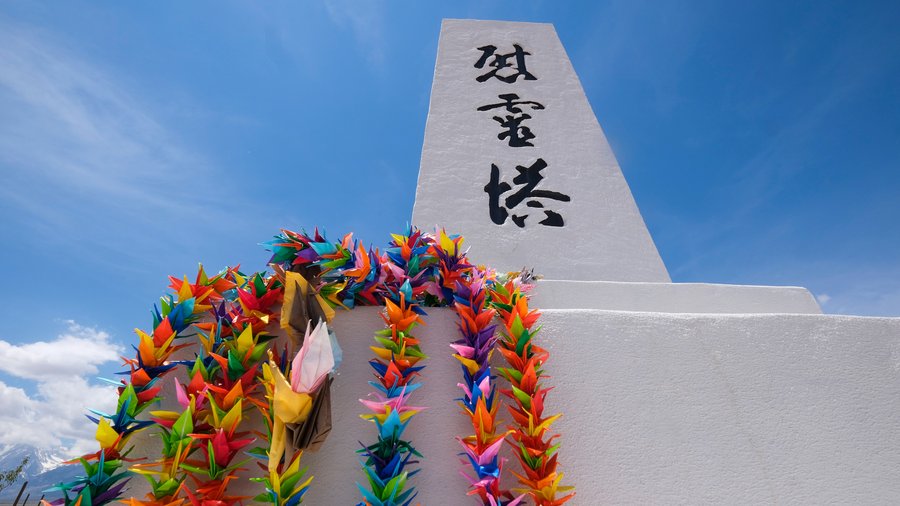Salzburg Global Fellow David Woolner draws parallels between Japanese American internment and the modern-day struggle for racial and ethnic equality
This article was written by Salzburg Global Fellow David Woolner, who attended the Salzburg Global American Studies program on “Crossing the Pacific: The Asian American Experience in U.S. Society and Discourse” in September 2024.
Incidents of xenophobia and nativism in response to crises are all too common in American history. In the wake of the COVID-19 pandemic that erupted in 2020, the primary scapegoat for the health crisis that gripped the United States were Asian Americans. By early 2022, the Stop Asian Hate coalition announced that there had been over 10,000 anti-Asian hate incidents reported in the United States since the start of the pandemic.
Sadly, this is not the first time Asian Americans have been targeted. On February 19, 1942, U.S. President Franklin D. Roosevelt (FDR) signed Executive Order 9066, authorizing military officials to engage in one of the most serious violations of human rights committed by the American government: the internment of over 120,000 Americans of Japanese ancestry. FDR carried out this decision even though his justice department opposed the idea on constitutional grounds and the FBI reported no evidence of “fifth column” activities among the Japanese American community at the time.
Eleanor Roosevelt also opposed this policy. She understood the fear that gripped the nation in the wake of the surprise attack that the Japanese carried out on the U.S. Fleet at Pearl Harbor. But in a remarkable editorial published just days after the United States suddenly found itself at war with Germany, Italy, and Japan, she urged the American people not to give in to feelings of racism and xenophobia. She remained confident, she wrote, in the ability of the FBI and Secret Service to ferret out any German, Italian, or Japanese agents who might represent a threat to the United States. She calmly advised her fellow Americans to report any suspicious activity to the proper authorities.
But she also cautioned her fellow citizens not to forget that “the great mass of our people, stemming from these various national ties, must not feel that they have suddenly ceased to be Americans.” Indeed, she went on, how the American people respond to this crisis represents “perhaps, the greatest test this country has ever met.” Americans, after all, “come from all the nations of the world.”
In words that powerfully resonate in today’s climate of fear and hate, she admonished the American people not to forget the unique role that the United States can and must play at this critical moment. For “if,” she wrote, “we cannot meet the challenge of fairness to our citizens of every nationality, of really believing in the Bill of Rights and making it a reality for all loyal American citizens, regardless of race, creed or color; if we cannot keep in check anti-Semitism, anti-racial feelings as well as anti-religious feelings, then we shall have removed from the world, the one real hope for the future on which all humanity must now rely.”
My participation in the Salzburg Global American Studies program on “Crossing the Pacific: The Asian American Experience in U.S. Society and Discourse” made it clear that a thorough examination of the circumstances and the policies that led to the internment of Japanese Americans during the Second World War offers many lessons for today. Indeed, the several days of constructive dialogue at Salzburg Global made it obvious that the lessons that might be drawn from the internment of Japanese Americans during the war are multifold: Not only does it shed light on the impact that xenophobia and racism has had—and continues to have—on Asian Americans, but also on the impact these tendencies have on other ethnic and religious minorities.
Examining these issues also sheds light on how best to approach the global refugee crisis that is currently gripping Europe and the United States. Exploring the experience of Asian Americans raises a number of important questions about what it means to be an American, or European, and about how one should define one’s self in a world that is increasingly multiethnic and multiracial.
One of the great challenges we face as historians is how to interpret the past in a manner that is accessible to the public and provides lessons for future generations. My exposure to the interdisciplinary and diverse discussions at Salzburg Global has provided me with a rich new perspective on the issues of race and ethnicity in the American experience that will undoubtedly enhance my abilities as a scholar, educator, and citizen.
David Woolner is professor of history and Kovler Foundation Fellow of Roosevelt Studies at Marist College, senior fellow of the Roosevelt Institute, and senior fellow of the Center for Civic Engagement at Bard College. He is the author of The Last 100 Days: FDR at War and at Peace and is editor/co-editor of five books on progressivism and the Roosevelt era. His reviews and op-ed pieces have appeared in The Washington Post, TIME, The Nation, The Irish Times, and other publications. He served as historical advisor to the Ken Burns films, "The Roosevelts: An Intimate History" and "The US and the Holocaust" and for numerous special exhibitions at the FDR Presidential Library and Museum.
Explore our digital publication, which includes more coverage from the Salzburg Global American Studies program on “Crossing the Pacific: The Asian American Experience in U.S. Society and Discourse.”


